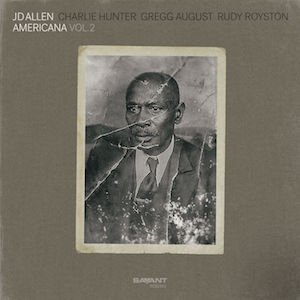Label: ECM Records, 2023
Personnel - John Scofield: guitar; Vicente Archer: bass; Bill Stewart: drums.
Renowned American guitar virtuoso John Scofield, whose inspirational playing alternates between incendiary and velvety smooth, unveils a captivating new trio album that features him alongside distinctive sidemen such as bassist Vicente Archer and drummer Bill Stewart. The former rejoins the other two five years after Combo 66, while the latter has been a consistent collaborator of the guitarist since 1991. Across the 14 tunes comprising Uncle John’s Band (titled after the Grateful Dead’s 1970 folk rock song), Scofield paints a vibrant spectrum of sounds, upholding his inimitable spirit while maintaining a sharp focus and a distinct sense of identity.
Scofield is credited with half of the material, but the record opens with a rendition of Bob Dylan’s classic, “Mr. Tambourine Man”. Droning electronics in loop accompanied by bright cymbal continuum and a resistant bass pedal underpin an introductory section that prominently features the guitar. Under the strong folksy spell of the song, Scofield opens new perspectives as his solo unfolds. Subsequently, Archer follows suit, impregnating his statement with airy waves.
The uptempo hard-bop groove of “How Deep” and the cool jazz vibe of Miles Davis/Bud Powell’s “Budo” showcase nimble jazz maneuvers executed with muscle and an unabashed swinging posture. Coming from the guitarist’s pen, “TV Band” and “Nothing is Forever” (a heartfelt tribute to his late son Evan) are loaded with generous amounts of groove, presenting a scintillating combination of melodic and chordal prowess. They are exquisitely polished to perfection in its final touches. The emotional resonance within these two pieces is particularly noteworthy.
Shifting gears, the country-tinged hues of “Back in Time” and the folk-rock essence of Neil Young’s “Old Man”, which rounds off the first disc, are seamlessly enveloped in a tasteful jazz veneer.
On CD2, the musical landscape feels even more elastic. The highlights are the frail standard jazz ballad “Stairway to the Stars”, propelled by Stewart’s sensitive brushwork; “Mo Green”, a soulful jazz-rock head-nodder with a great funky riff at the center; and “Mask”, which epitomizes jazz-funk at its best, leaving ample room for Stewart’s brilliant commentary.
Placing a high premium on sound clarity and fresh musical ideas, this album is an absolute must-listen for Scofield enthusiasts, offering a delightful collection of eclectic tunes infused with his signature electric vibe.
Favorite Tracks:
03 (CD1) - TV Band ► 06 (CD1) - Nothing is Forever ► 03 (CD2) - Mo Green ► 04 (CD2) - Mask












